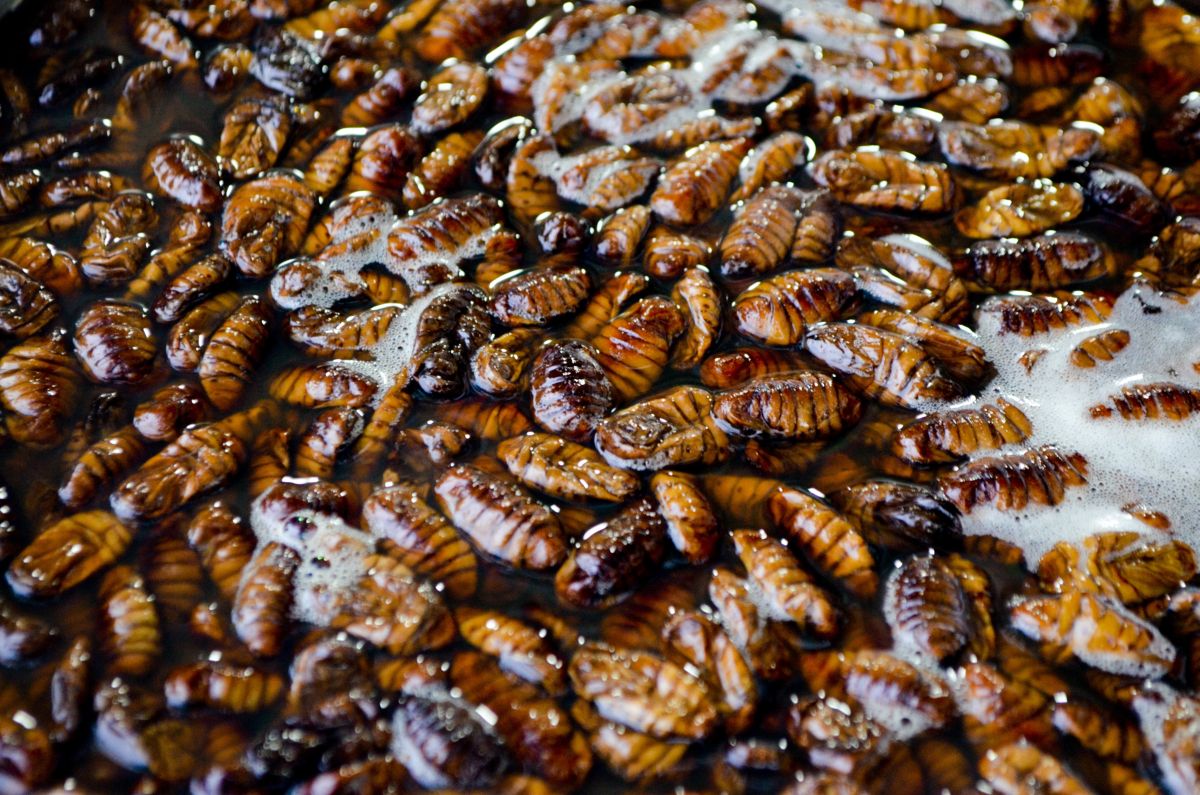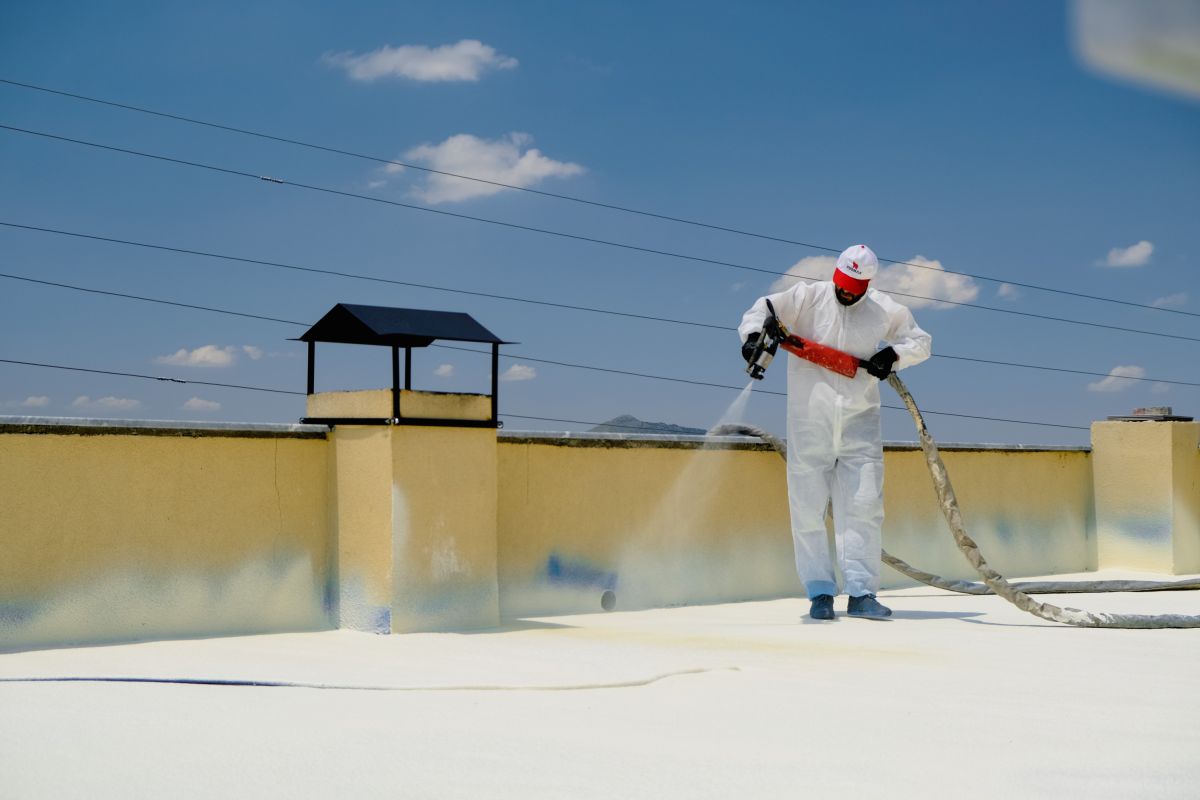The onset of winter brings with it a number of difficulties, one of which is an increase in the risk of insect infestations. In the colder months, pests like mice, roaches, and spiders might be tempted to seek refuge inside your home. Damage to your home and health problems for you and your family are only two problems that can result from these pests. To avoid pest infestations in winter, there are some simple steps that you can follow:
- Ensure no pests enter your home through any walls, doors, or windows.
- Maintain a tidy and clean residence, as bugs like unsanitary conditions.
- Keep food in sealed containers and promptly wipe up any spills or crumbs.
- To avoid standing water that might attract bugs, make sure you clean your gutters and downspouts periodically.
In addition to these measures, hiring expert pest control services that can evaluate the state of your property and provide specific measures to eliminate pests is essential. Pest issues may be eliminated with the help of these experts since they know how to pinpoint the source of the problem and implement solutions.
You can keep unwanted pests out of your house throughout the winter by following the aforementioned steps and using the services of a professional pest control company. Read this post for advice on how to get rid of pests and save yourself the trouble.
How To Deal With Pests In The Winter?
In most people's minds, annoying insects are synonymous with summer. In addition, numerous vexing insects, such as mosquitoes, bees, and others, are active during the hot summer months. However, pest management in the winter is just as important as in the summer.
Many insects start looking for a warm winter spot as the temperature drops. They seek safe havens with the ready availability of nourishment and water. If you have strict rodent-free standards for your house, hiring trained exterminators is best. Taking the following simple measures can help you avoid dealing with a bug infestation this winter:
Seal Up Your House's Exterior and Prevent Water Damage
Sealing up any potential sources of entry will keep unwanted pests out of your property. Small rodents can easily enter your home through wires or pipes, so check these potential entry points. The openings leading to your chimneys should be sealed off. Maintain a dry and well-ventilated basement, attic, and crawl space.
Vacuum Around Windows and Doors
Pests, including spiders, earwigs, rats, silverfish, and beetles, are easily captured with a daily vacuuming routine. The effectiveness of pest management in the home improves when possible rodent food sources are eliminated.
Get Rid Of Any And All Sources Of Moisture In Your House.
Check for and fix any plumbing leaks or obstructions to prevent pests like cockroaches, which flourish in wet conditions. Cockroaches are very common in kitchens and bathrooms, so it's crucial to keep an eye out for them there. Having fewer cockroaches also lessens the likelihood of rodents.
Check For Rodents If You Live There
If you see signs of rodents in your garage or other outbuildings, you should investigate them right away. Eliminate any stacks of trash, empty boxes, or other discarded items that may have been collected along the walls or in any crevices. When you engage experts to deal with rodents, they will pay close attention to all these factors.
Take Care of Your Garden Regularly
Winter pest prevention that includes landscaping is vital. Remove any overhanging limbs or shrubs from your property. Tree trimming prevents rats and other pests from accessing your home through the overhang of your roof.
Store Food Properly
The presence of exposed food attracts rodents and other pests. Keep food in sealed containers and wipe up any spills or dropped food debris right away. Loose masonry or weather stripping on the basement foundation has to be fixed immediately. By taking these measures, you may reduce the likelihood of pests entering your house during winter.
Adverse Effects Of Winter Pests
A wide variety of unwanted critters could move in with you. Cockroaches, mice, and rats, in particular, will likely invade your home without your knowledge. You can tell by the increased frequency with which you spot cockroaches, the sounds of rats at night, and the presence of rodent faeces.
In the event of a pest invasion, being prepared is your best option, but a pest control business may also serve as an effective first line of defence during the colder months. Here is some advice on how to avoid uninvited guests and keep your home secure.
Mice
Mice may be attractive at first glance, but remember the damage they may do to your home during the year's colder months. The average house mouse, for instance, is just 6 cm from nose to tail and may quickly multiply into the millions.
In her brief one-year lifespan, a female mouse can produce up to 60 offspring. They can nest in manufactured structures and bring in everything they think they might need. In addition to gnawing through wood, mice can burrow through insulation and build a comfortable home with soft furnishings.
However, mice present a particularly serious risk during the winter because they can damage electrical wiring by nibbling at the insulation. Your electronics may go dark if this happens. In the worst-case situation, the frayed wires might start a fire.
Rats
Rats are more of a concern in the Winter since they are larger than mice and can spread disease. The Norway rat is one of the most prevalent rodent species to invade Australian homes and businesses. Without counting their tails, they can grow as long as 40 centimetres.
The females have a lifespan comparable to that of female mice but may have many more offspring. Studies have shown that a single rat couple can produce 500 million offspring in just a few years if the issue still needs to be addressed.
However, you may also encounter roof rats during the colder months. Although much smaller than Norway rats, they still pose a significant threat. Rafter rats, as their name indicates, are more likely to be found (or heard) wreaking havoc on the upper levels of your structure.
Rats are even more dangerous since they may taint food supplies and spread disease. In addition, humans can get a wide range of ailments from bacteria carried by specific rats, including high fevers and skin rashes.
Feared rat-bite fever is also a serious threat (sometimes transmitted by mice). A bite does not always transmit the germs that cause the sickness; sometimes, they are spread through faeces that contaminate food. Complications, including brain and heart valve infections, are possible.
It's possible to discourage rodents like rats and mice from making your home theirs. Quickly disposing of leftovers, never keeping pet bowls uncovered, and clearing up clutter are all great ways to reduce the likelihood of rodent infestations. However, it's time to call in the pros when trapping alone isn't working to control a rodent infestation.
Cockroaches

Even hearing the name of these bugs is enough to give some folks the willies. Beware, though; their numbers may swell substantially indoors during the cooler winter months. In addition, the fact that cockroaches are nocturnal makes it more likely that you may discover an infestation after dark. Finally, their foul secretions may also be detectable to smell.
There are many species of cockroaches, but only a few may be found in Australia. These include the German cockroach and the almost 4-centimetre-long Australian cockroach. Cockroaches, like rodents, may quickly spread over an area. In the case of German cockroaches, a single female may produce a population of up to 30,000 offspring.
Cockroaches are not only terrifying to look at, but they also pose a health risk when they contaminate food and cooking equipment. Salmonella is an example that can cause humans to become ill with cramps and a high temperature. Cockroaches may also be a source of hepatitis A, which can cause various symptoms, from weakness to joint discomfort.
Avoiding the expense of exterminators is easier if you just get rid of trash and don't let dishes pile up in the sink. Check the exterior of your house for any openings that might provide access to these hardy pests.
Termites
These creatures are ever-present, even during the coldest months of the year. White ants are a type of pest that may do extensive damage to your home's structure in a short amount of time. Termites are a persistent danger to every structure, regardless of age. The costs might be reduced if an experienced inspector discovers an infestation early on.
What Kinds Of Damage Do Winter Pests Often Cause?
Insects and rodents may do a lot of damage to your house and belongings over the winter. Homeowners need to be aware of the potential costs associated with insect issues, especially in the year's colder months. The following are examples of typical pest-related damage throughout the winter:
Electrical Wires
Mice and rats, in particular, are notorious wire chewers that frequently cause electrical problems and even fires. Since the rodents prefer warm places to nest, such as attics and basements, the wiring in these areas is especially at risk. Protect your house against rats by hiring a pest control service, sealing any holes or cracks in the walls or foundation, and keeping all cables out of sight and out of reach.
Contamination Of Food
Mice, rats, and cockroaches can leave their faeces, urine, and hair in your stored food, making it unfit. Food poisoning and other illnesses are only two of the many major health problems that can result from eating spoiled food. Using pest control tools to eliminate any bugs in the house or storing food in airtight containers will help homeowners avoid this problem.
Structural Damage
The structural integrity of your home can be compromised by pests like termites and carpenter ants, which eat wood and other construction materials. Particularly hazardous is the fact that the harm produced by these pests is not always readily apparent, making early detection difficult. However, homeowners may avoid this damage by having bugs exterminated, fixing any obvious damage right once, and keeping an eye out for any indicators of hidden damage through routine inspections.
Damage To Insulation

Insulation damage caused by pests can result in higher energy bills and less effective insulation. Mould development and moisture difficulties caused by damaged insulation can also harm inhabitants' health. Homeowners may avoid this damage by having bugs exterminated, fixing any obvious damage right once, and keeping an eye out for any indicators of hidden damage through routine inspections.
Damage To Personal Belongings
Insects and other pests may wreak havoc on your items by chewing on them. This is especially annoying for homeowners since fixing the damage may be expensive and time-consuming. However, this damage may be avoided if the homeowner uses pesticides to eliminate unwanted bugs, keeps their items in airtight containers, and maintains a clean, clutter-free house.
Health Hazards
Disease-causing organisms and allergens are both transferred and triggered by pests. People with respiratory or immune system conditions are particularly at risk. This damage may be avoided if homeowners employ pest control services to get rid of unwanted bugs, maintain their homes clean and clear of clutter, and regularly check for symptoms of pest infestations.
Conclusion
The onset of winter is accompanied by an increased risk of insect infestations. To prevent pest infestations, there are several steps that individuals can follow. It is crucial to ensure that no pests can enter the home through walls, doors, or windows.
Maintaining a clean and tidy residence is also important in deterring pests. Furthermore, storing food in sealed containers and periodically cleaning gutters and downspouts can be beneficial.
Engaging the services of professional pest control experts is essential to effectively eliminate pest issues. It is important to note that pest management during the winter is equally significant as in the summer. Implementing preventive measures is key to avoiding bug infestations this winter.
These preventive measures include sealing the exterior of the house and preventing water damage. Regularly vacuuming around windows and doors, eliminating sources of moisture, and inspecting and repairing any plumbing leaks or obstructions are vital steps.
Taking care of the garden on a regular basis, storing food properly, and fixing loose masonry or weather stripping on the basement foundation can also contribute to reducing the likelihood of pests entering the house during winter.
However, it is essential to remain vigilant about the adverse effects of winter pests, such as cockroaches, mice, and rats, which may infiltrate the premises unnoticed.
Content Summary
- Winter brings an increased risk of insect infestations.
- Mice, roaches, and spiders may seek refuge inside homes during colder months.
- Pest infestations can cause damage to homes and health problems for residents.
- Steps to avoid pest infestations in winter include sealing entry points, maintaining a clean residence, and storing food in sealed containers.
- Periodically cleaning gutters and downspouts helps prevent standing water that attracts bugs.
- Hiring expert pest control services is essential for effective pest elimination.
- Pest management is equally important in winter as in summer.
- Sealing the house's exterior and preventing water damage helps keep pests out.
- Vacuuming around windows and doors helps capture pests like spiders and earwigs.
- Getting rid of sources of moisture prevents cockroach infestations.
- Checking for and fixing plumbing leaks or obstructions is important to prevent pest entry.
- Regular garden care, including removing overhanging limbs, helps prevent pests from accessing the home.
- Properly storing food reduces the likelihood of pests entering the house.
- Fixing loose masonry or weather stripping on the basement foundation helps prevent pest entry.
- Cockroaches, mice, and rats may invade homes during winter without detection.
- Being prepared and hiring a pest control business can help prevent and address infestations.
- Mice can cause damage to homes by gnawing on electrical wiring.
- Rats are larger than mice and can spread diseases.
- Cockroaches can contaminate food and pose health risks.
- Termites can cause extensive damage to the home's structure.
- Insects and rodents can damage electrical wires, contaminate food, and cause structural damage.
- Pest-related damage to insulation can lead to higher energy bills and health issues.
- Insects can damage personal belongings by chewing on them.
- Pests can transfer disease-causing organisms and allergens, posing health hazards.
- Regular inspections and routine pest control can help detect and prevent damage.
- Hiring a pest control service is effective in getting rid of unwanted pests.
- Keeping homes clean and clutter-free helps prevent infestations.
- Sealing entry points and fixing damage promptly reduces the risk of infestations.
- Storing food in airtight containers helps protect it from pests.
- Proper maintenance and care can minimise the risk of winter pest infestations.
FAQs About Winter Pest Control
Springtime brings about an increase in temperatures, the melting of ice, and the blooming of flowers. These warmer temperatures bring many pests out from their winter hiding places. As these animals emerge, they will have one thing on their minds – food and water! Spring is also the mating season for many species.
- Try pest prevention first.
- Remove sources of food, water and shelter.
- Store food in sealed plastic or glass containers.
- Fix leaky plumbing and don't let water accumulate anywhere in the home.
- Clutter provides places for pests to breed and hide and makes it hard to get rid of them.
Pest control is important for several reasons. First, pests such as rodents, insects, and other small animals can carry and transmit diseases to humans and animals. For example, mosquitoes can carry the malaria virus, and rodents can spread hantavirus. Pest control measures help prevent the spread of these diseases.
Second, pests can cause significant damage to crops, property, and structures. Termites, for example, can cause extensive damage to wooden structures and furniture, while rodents can chew through electrical wires and cause fires. By controlling pests, we can protect our property and investments.
Third, pests can be a nuisance and affect our quality of life. Bed bugs, for example, can cause itchy bites and disrupt sleep, while cockroaches and other insects can contaminate food and cause allergies.
Effective pest control requires a combination of preventive measures, such as proper sanitation and storage practices, and the use of pesticides and other control methods. It is important to use pest control methods that are safe for humans and the environment, and to follow all instructions carefully to avoid any adverse effects. Overall, pest control is crucial for protecting our health, property, and quality of life.
Yes, you can use natural pest control methods during the winter to keep pests at bay. There are several options available, such as using essential oils like peppermint or lavender to repel pests, or using diatomaceous earth to kill insects and other pests. Natural pest control methods can be effective and are generally safer for both people and pets than chemical-based pest control options. However, it's important to remember that not all natural pest control methods are equally effective for every type of pest, so it's a good idea to do some research or consult with a professional if you're dealing with a particularly stubborn pest problem.
If you are experiencing a pest infestation or want to take preventative measures to keep pests out of your home during the winter, it may be a good idea to hire a professional pest control service. A professional can assess your home and provide effective pest control solutions. They have the expertise and equipment to identify and eliminate pests, and can often provide more long-term solutions than DIY methods. Additionally, professional pest control services can help you avoid the risks associated with handling pest control chemicals on your own, and can often provide more eco-friendly pest control options.

